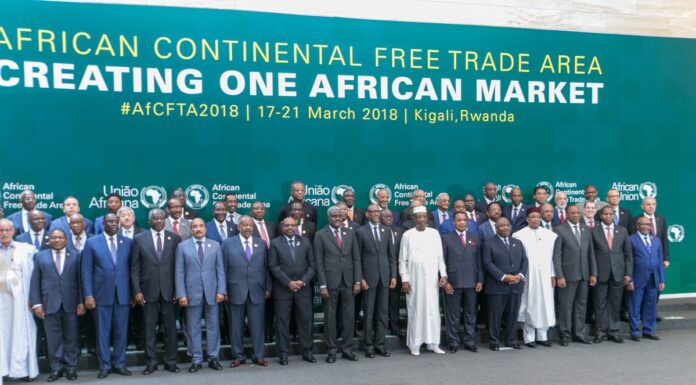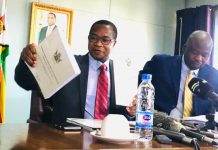Staff Writer
Zambia has become the latest country to submit instruments of its ratification of the African Continental Free Trade Area (AfCFTA) agreement to the African Union Commission.
African Union Commission chairperson Moussa Faki Mahamat announced the development that means only 18 countries are left to comply with the AfCFTA requirement.
The 18 countries are Benin, Botswana, Burundi, Cape Verde, Central African Republic, Comoros, Democratic Republic of the Congo, Guinea-Bissau, Liberia, Libya, Madagascar, Morocco, Mozambique, Seychelles, Somalia, South Sudan, Sudan and Tanzania.
“I was delighted to receive the Ambassador of the Republic of Zambia HE Emmanuel Mwamba, alongside AU Commissioner Albert Muchamba, who deposited the instruments of ratification to the AfCFTA, making Zambia the 36th AU member to fully accede to the agreement,” Mahamat said,
The AfCFTA agreement entered into force on May 30, 2019 after the treaty was ratified by 22 countries – the minimum number required by the treaty.
It provides the opportunity for Africa to create the world’s largest free trade area with the potential to unite more than 1.2 billion people in a $2.5 trillion economic bloc and usher in a new era of development.
It has the potential to generate a range of benefits through supporting trade creation, structural transformation, productive employment and poverty reduction.
Trading started officially on January 1 this year, signaling the commencement of Africa’s journey to market integration, after it was postponed by six months last year following the outbreak of the coronavirus pandemic.
Only Eritrea out of the continent’s 55 countries is yet to sign the agreement.
Zambia’s ratification comes as the country finalizes its national AfCFTA strategy, which will guide its implementation of the agreement.
Through its African Trade Policy Centre (ATPC), the Economic Commission for Africa (ECA) has been working with the African Union Commission (AUC) and member states to deepen Africa’s trade integration and effectively implement the agreement through policy advocacy and national strategy development.
The ECA also works with the International Trade Centre (ITC), United Nations Conference on Trade and Development (UNCTAD), and independent trade experts with the financial support of the European Union to assist with the implementation of the agreement.














